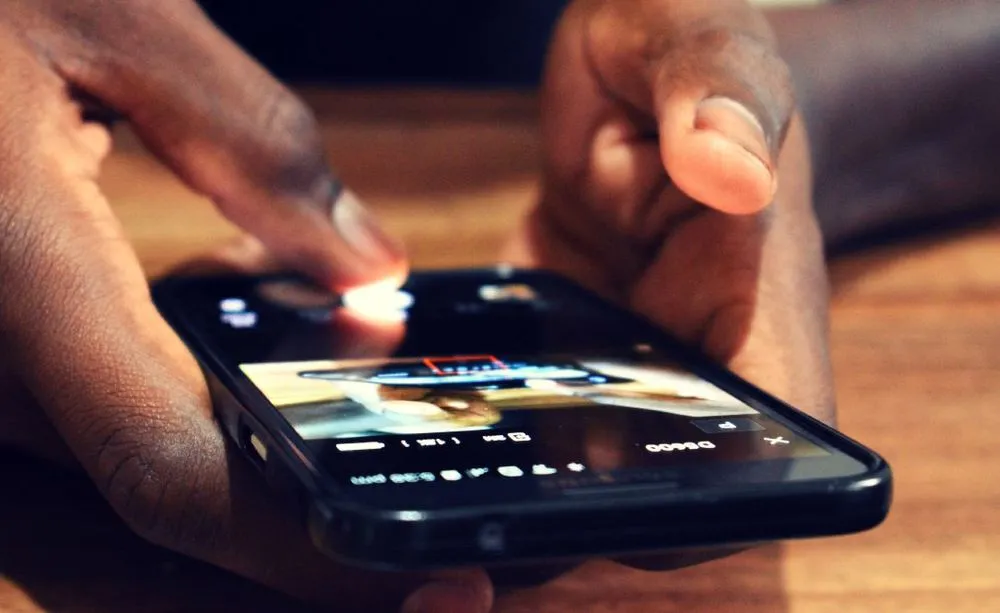Mideast governments accused of using fake dating profiles in arrests of LGBT people
The governments of several Middle Eastern and North African countries have used fake social media or dating app profiles to lure and arrest lesbian, gay, bisexual and transgender people, according to a new report from Human Rights Watch (HRW).
Rasha Younes, senior LGBT rights researcher at Human Rights Watch, spoke with 90 people directly affected by the digital targeting as well as 30 experts on the issue. HRW found that authorities in Egypt, Iraq, Jordan, Lebanon and Tunisia entrapped, detained and tortured people over their identity.
In total, HRW says it found documented evidence of at least 45 cases where LGBT people were targeted and arbitrarily arrested in Egypt, Jordan, Lebanon, and Tunisia.
In 23 cases, people were acquitted after appealing charges that included “inciting debauchery,” “debauchery" and “prostitution." Twenty-two people were not charged but instead held in prison for various amounts of time, including one situation in Lebanon where someone was held for 52 days.
Five of the cases saw people convicted and sentenced to three years in prison or less. HRW found that most of those arrested were not provided access to a lawyer and were eventually forced to sign confessions in order to leave.
Younes said law enforcement in Egypt, Iraq, Jordan, Lebanon, and Tunisia have “integrated technology into their policing of LGBT people.”
“While digital platforms have enabled LGBT people to express themselves and amplify their voices, they have also become tools for state-sponsored repression,” Younes said.
“Online abuses against LGBT people have offline consequences that reverberate throughout their lives and can be detrimental to their livelihood, mental health, and safety.”
In the last decade, several countries have turned to digital means in an effort to criminalize, stigmatize and target members of the LGBTQ+ community, as researchers from Recorded Future detailed in a 2020 report.
Representatives for all five countries did not respond to requests for comment about the claims made in HRW’s report.
Fake profiles
HRW’s 135-page report does not cover the use of spyware but instead illustrates how governments can still acutely monitor citizens through a variety of other means.
The researchers found that police in each country monitored social media, created fake profiles to impersonate LGBT people and sought to entrap people on dating apps like Grindr.
HRW spoke with one man, Yazid, who said Egyptian officials arrested him in July 2021. One of the officers who came to his cell with a police report was a man he met on the dating app Grindr.
“They beat me and cursed me until I signed papers that said I was ‘practicing debauchery’ and publicly announcing it to fulfill my ‘unnatural sexual desires’,” he said.
A trangender woman from Jordan named Amar said police searched her phone, took screenshots of her messages and photos.
Using that content, they filed charges against her. She added that they went through her WhatsApp chats to find other friends who may be LGBT in an effort to entrap them as well.
HRW said officials in all five countries routinely search the devices of people they believe to be homosexual or trans – effectively forcing them to unlock their devices under threat of violence or after beatings occurred.
One transgender woman was held at a police station in Egypt for 13 months where she says she was repeatedly sexually assaulted. HRW said it was common for transgender women to be held in men’s cells where they suffered sexual assaults and other violence.
HRW worked with several LGBT rights groups across several countries, including Masaar in Egypt, IraQueer in Iraq, Rainbow Street in Jordan, Helem in Lebanon and the Damj Association in Tunisia.
In addition to the arbitrary arrests, HRW found 20 cases where security forces in Egypt, Iraq, and Jordan entrapped people who used Grindr or Facebook. The researchers uncovered 17 other instances of online extortion of LGBT people using Grindr, Instagram, and Facebook in Egypt, Iraq, Jordan, and Lebanon.
Some of the extortion was also done by organized gangs in Egypt or armed groups in Iraq. Even those who reported the extortion to authorities were themselves arrested.
In Jordan, Lebanon, and Tunisia, HRW found 26 cases where LGBT people were doxxed and outed on both Facebook and Instagram. Victims said the revelations ruined their lives, costing them jobs, prompting violence from family members and forcing them to flee the country in some cases.
Even though a number of people reported the posts to Facebook and Instagram, the posts were never taken down.
In addition to criticizing the governments in each country, HRW said social media giants like Meta and dating apps like Grindr must be more proactive in addressing the abuse LGBT people face in Arab-speaking countries.
The platforms need better Arab-language moderating and features that take into account the possibility that they may be abused by governments to target specific groups of people, HRW said.
“Authorities across the MENA region should stop targeting LGBT people, online and offline, and social media companies should mitigate the adverse impacts of digital targeting by better protecting LGBT people online,” Younes added.
Jonathan Greig
is a Breaking News Reporter at Recorded Future News. Jonathan has worked across the globe as a journalist since 2014. Before moving back to New York City, he worked for news outlets in South Africa, Jordan and Cambodia. He previously covered cybersecurity at ZDNet and TechRepublic.



